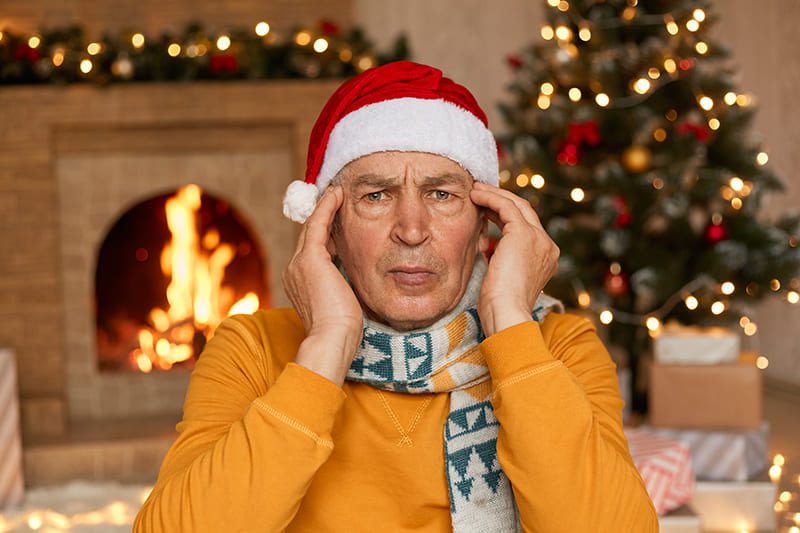By Barry Keate
Barry Keate, has lived with tinnitus over 40 years and has published 150+ research articles on numerous aspects of tinnitus. He is an expert on the condition and a well-known advocate for those with tinnitus.

(user18526052/Freepik)
Is there anything more hopeful than a New Year’s celebration? We get to start over, try new things, let go of the past, and embrace a new future. It’s streamers and noise makers; fancy food and funny hats.
For some, a new year means joining bigger citywide celebrations with performers, a dramatic countdown, and a spectacular fireworks show. However, as much as we love the magic of fireworks, they are quite loud. Have all those pops and bangs ever made you wonder if you’ll end up with hearing loss or tinnitus from loud noise? How do you mitigate the damage so you can have fun and hear well for the long term?
Can Fireworks Damage Your Hearing?
Fireworks are airborne explosions, so yes they do have the potential to cause damage. While glorious, the explosions can range between 150 and 175 decibels. Our safe listening threshold is between 70 and 85 decibels. Fireworks are double the recommended noise limit, but that’s no reason to avoid the celebrations. If you cut out every activity that could damage your hearing, you’d miss out on a lot. Power tools, lawn equipment, music concerts, raceways, and cheering crowds at sporting events all have the potential to damage your hearing. The trick is knowing how to protect your hearing while enjoying life to its fullest.
Distance
A fireworks display is magical if you’re an adult, but doubly so for young children who may never have seen such a display in their lives. Just keep in mind that young ears are especially susceptible to damage. To fully enjoy the experience without losing any of the magic, you can park your car or set up lawn chairs farther away from the action.
Do you really want to sit right under the fireworks? You have to crane your neck to see the show, the concussive sound can be painful, and the loud sudden noise can be frightening for little ones. Besides, what goes up must come down. Bits of hot debris rain down over the closest partygoers if they get too close.
However, the colorful bursts of light can be seen at great distances in the night sky. Consider finding a comfortable spot at least a block away if you have a clear skyline or a higher perch to watch from. In some cities, you can sit on a rooftop and watch fireworks displays all over town.
Protect Your Ears with Earplugs
If you choose to be in the middle of the action, no problem. Get yourself some earplugs to prevent the concussive soundwaves from entering your ear canal with force.
There are many types of ear protection you can buy.
- Small foam plugs are only a couple of dollars at your local drug store, hunting shop, or sports store. Compress the foam by rolling it between your thumb and index finger until the end is skinny, and insert it in your ear. The foam will expand and form in your ear canal, insulating your eardrum from the noise.
- If you already have hearing aids, and if they are formed to your ear to help block out ambient noise, you can turn the sound down to limit what you hear. Just let your family know that’s what you’re doing so they don’t think you’re ignoring them.
- Over-ear protection looks like headphones and cups your ears snuggly to muffle the sound. It makes holding a conversation difficult, but it is very effective. That’s why they use them on gun ranges where repeated explosive sounds could make gun enthusiasts, police, and military personnel lose their hearing.
What About People Who Need To Sleep?
Some don’t want to ring in the new year at midnight. They’re perfectly happy to celebrate in the morning. They’ve got jobs to go to, travel plans, or family get-togethers, and they need to get up at an early hour. Firework noise can make it hard to sleep, and extended firework displays can cause hearing damage if the sleepy resident lives close to the action.
If this is you, or if you sleep odd hours and want a few tips on soundproofing your home, here are some steps to take before the holiday.
- Using small foam earplugs is likely the easiest and most cost-effective way to “soundproof” your bedroom for sleeping. Side sleepers may just need to use one plug for the exposed ear, while front or back sleepers can use two.
- Use weather stripping and sealants to plug all the holes and cracks where sound waves come in unobstructed.
- Hang heavy curtains, which have the added benefit of blocking light to promote a deeper sleep.
- Bookcases, other furniture, tapestries, and artwork obstruct the sound waves as they travel from the fireworks explosions toward your ear. The more barriers between you and the explosion, the less you will hear.
- Add carpets or rugs.
- Make sure the walls are insulated.
Final Thoughts
There isn’t any need to avoid the festivities this year. You can choose to watch from afar or be right in the middle of things. Just choose the appropriate hearing protection methods to keep your ears healthy long-term.
If you do end up with a ringing in your ears, it may be temporary. Keep things low key for a day or so to let the nerves in your ears relax. You can also try nutrition and herbal supplements for tinnitus like Vitamin B12 and ginkgo biloba for ear ringing.
